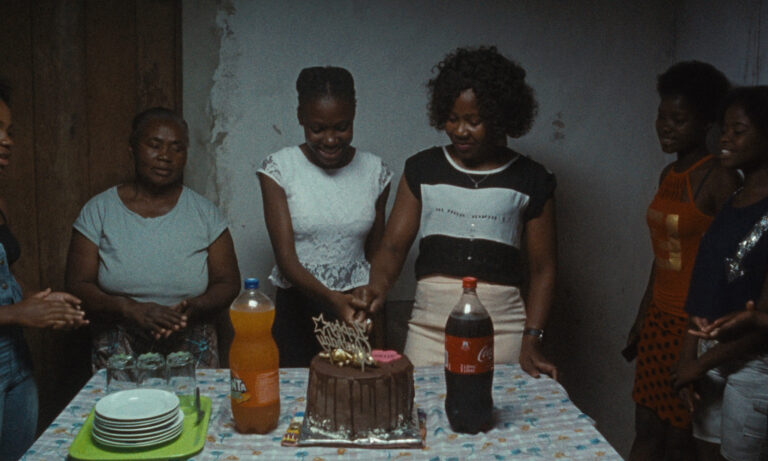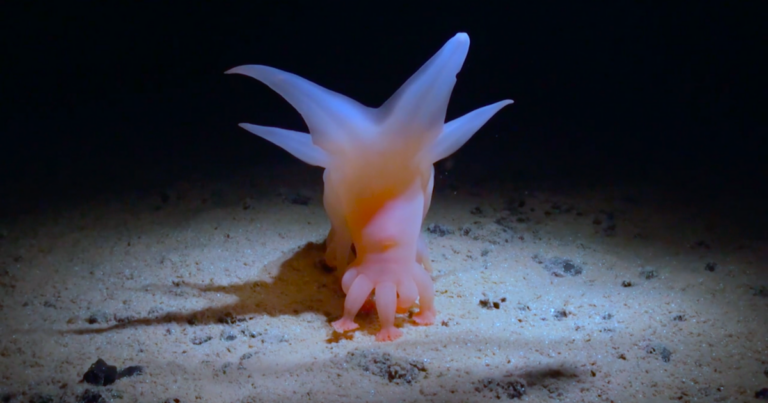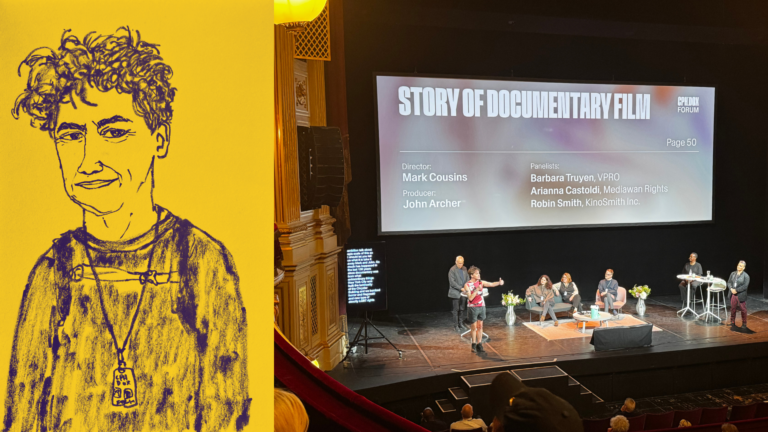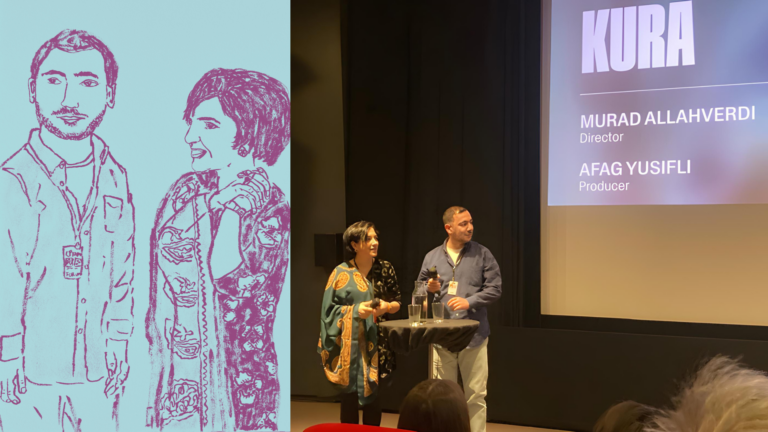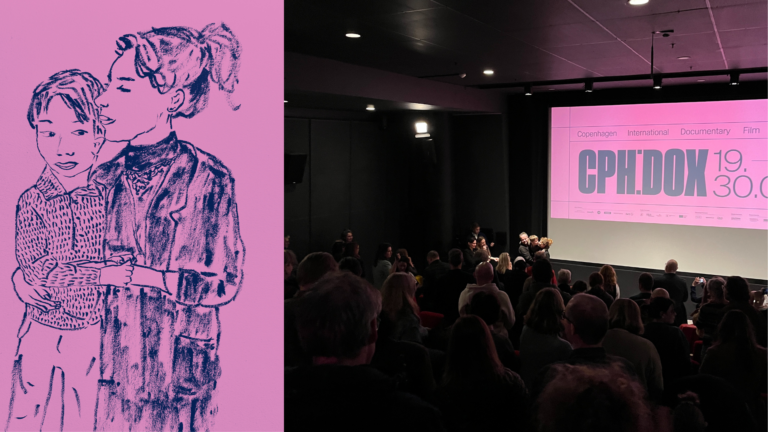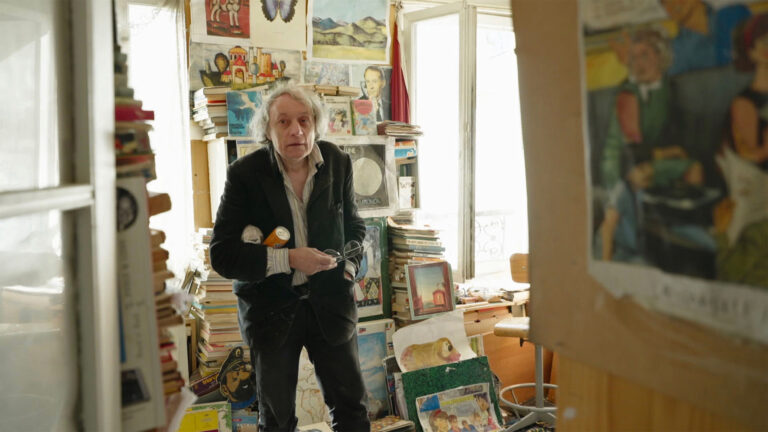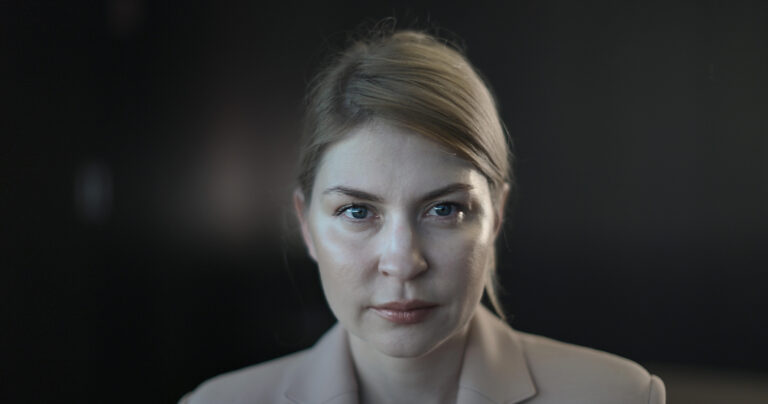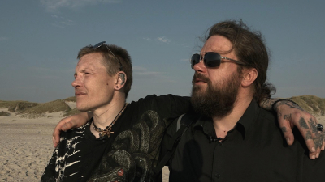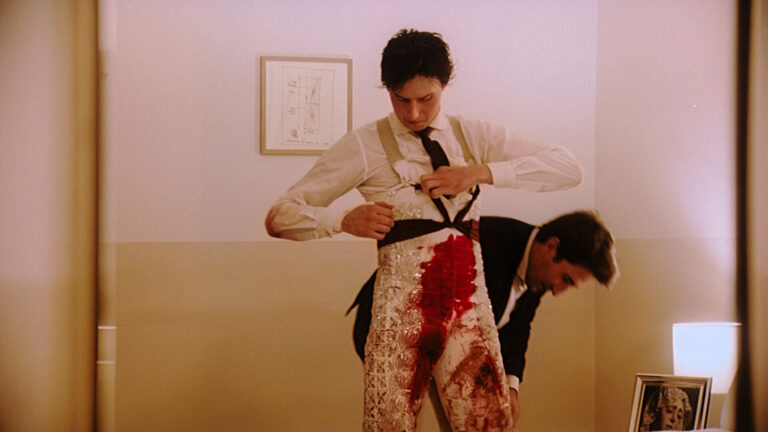


CPH:DOX 2025 Announces Award Winners
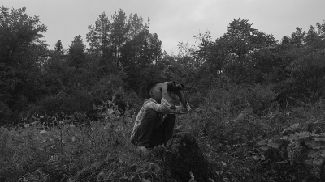
The juries have deliberated and the winners of the international competitions at CPH:DOX 2025 have been announced this evening at the festival’s Award Show at Kunsthal Charlottenborg. The international competition lineup included a total of 71 films in competition, in 6 different categories, featuring 56 world premieres, 12 international premieres, and 3 European premieres. The main prize DOX:AWARD has been awarded to ‘Always’ (PHOTO) by Deming Chen – a striking debut of great beauty.
Friday 28th Mar 2025
Besides the festival’s main prize, the Dox:Award, prizes have been awarded in the categories F:act Award, Nordic:Dox Award, New:Vision Award, Next:Wave Award, Human:Rights Award and Inter:Active Award. The Audience Award is yet to be announced on April 4 as the online festival unfolds, providing a chance for audiences based outside of Copenhagen to vote for their favourite film.
The winners of the international competitions of CPH:DOX 2025 are:
DOX:AWARD
Winner: ‘ALWAYS’ by Deming Chen / US, FR & CN / 2025 / World Premiere
Special Mention: ‘FLOPHOUSE AMERICA’ by Monica Strømdahl / NO, NL & US / 2025 / World Premiere
Sponsored by Politiken and Politiken-Fonden with a prize of €10,000, the DOX:AWARD is the festival’s main competition, honoring films with artistic quality, cultural relevance, and strong personal expression.
The jury consisted of Rikke Tambo Andersen, Max Kestner, Nicolas Rapold, Adele Tulli and Raul Niño Zambrano.
F:ACT AWARD
Winner: ‘2000 METERS TO ANDRIIVKA’ by Mstyslav Chernov / UA / 2025 / European Premiere
Special Mention: ‘THE PERFECT NEIGHBOR’ by Geeta Gandbhir / US / 2025 / International Premiere
Supported by International Media Support (IMS) and the Danish Union of Journalists with a prize of €5,000, the F:act Award competition recognizes films blending documentary and investigative journalism.
The jury consisted of Alexis Bloom, Mikala Krogh and Steffi Niederzoll.
HUMAN:RIGHTS AWARD
Winner: ‘9-MONTH CONTRACT’ by Ketevan Vashagashvili / GE, BG & DE / 2025 / World Premiere
Special Mention: ‘THE ENCAMPMENTS’ by Michael T. Workman & Kei Pritsker / US / 2025 / World Premiere
Awarded for the second consecutive year, the Human:Rights Award is sponsored by the Danish Institute for Human Rights with a prize of €5,000, and focuses on films dealing with human rights issues.
The jury consisted of Mohamed Saïd Ouma, Tomáš Poštulka and Birgitte Stærmose.
NORDIC:DOX AWARD
Winner: ‘WALLS – AKINNI INUK’ by Nina Paninnguaq Skydsbjerg & Sofie Rørdam / GL/ 2025 / World Premiere
Special Mention: ‘THE NICEST MEN ON EARTH’ by Josefine Exner & Sebastian Gerdes / DK / 2025 / World Premiere
The NORDIC:DOX Award (€5,000) honors standout documentaries from the Nordic region.
The jury consisted of Butheina Kazim, Dario Oliveira and Roja Pakari.
NEXT:WAVE AWARD
Winner: ‘ABODE OF DAWN’ by Kristina Shtubert / DE / 2024 / International Premiere
Special Mention: ‘WHO WITNESSED THE TEMPLES FALL’ by Lucía Selva / SP / 2025 / World Premiere
The NEXT:WAVE Award (€5,000) highlights new and emerging filmmakers.
The jury consisted of Sissel Morell Dargis, Sona Karapoghosyan and María Palacios Cruz.
NEW:VISION
Winner: ‘RAMALLAH, PALESTINE, DECEMBER 2018’ by Juliette Le Monniyer / BE / 2025 / World Premiere
Special mention: ‘SCRAP’ by Noémie Lobry
FR / 2025 / World Premiere
The NEW:VISION Award (€5,000) celebrates art films and boundary-pushing experiments.
The jury consisted of Mason Leaver-Yap, Jeppe Lange and Marina Kožul.
INTER:ACTIVE AWARD
Winner: ‘CONSTANTINOPOLIAD’ by Sister Sylvester & Nadah El Shazly / UK / Installation / 2025 / International Premiere
Special Mention: ‘THE GARDEN SAYS…’ by Uri Kranot, Michelle Kranot, Sara Topsøe Jensen, Sarah John & Marieke Breyne / DK / XR Perfomance-Installation / 2025 / World Premiere
The award winner will receive a winning package including two complimentary industry accreditations for Sunny Side of the Doc, two full access accreditations for the Industry Days of New Images Festival, 6 hours of legal consultation on European IP law and a cash prize of €1000.
The jury consisted of Irene Campolmi, David Adler and Carl Emil Carlsen.
Jury Statements
DOX:AWARD
Winner: ‘ALWAYS’
‘There’s a huge difference between nothing and small things. But life is in fact made up of many, often unnoticed, small things. We need the sensibilities of artists to show us the greatness of the little things.
This exquisitely shot chronicle of a rural farming family is alive with compassion and poetry.
The DOX AWARD goes to ALWAYS, directed by Deming Chen.’
Special mention: ‘FLOPHOUSE AMERICA’
‘Home is where the heart is, in love and in pain. A 12-year-old, his mother and his father live in close quarters that involve constant back and forth, fighting, making up, and fussing over one another (and the cat).
For its vision of living as a work-in-progress, squeezed by circumstances, the special mention goes to FLOPHOUSE AMERICA, directed by Monica Strømdahl.’
F:ACT AWARD
Winner: ‘2000 METERS TO ANDRIIVKA’
‘Ultimately we give the F: ACT award to ”2000 Meters to Andriivka” not just because it’s a conflict on our doorstep, but because it’s a masterpiece in filmmaking: a haunting, multi layered portrayal of war comparable to All Quiet on the Western Front. But this is not the First World War, it’s today. The meaningless of war, and also its unsettling poetry are all on full display here. An artist in amongst bloodshed brings the reality home, and make an anti war film that forces us to reflect on the diginity of each human life lost.’
Special Mention: ‘THE PERFECT NEIGHBOR’
‘Our special mention is extremely powerful on a physical level. The choice to stay on the bodycam footage was brave, and it paid off. This shows enormous filmmaking skill. This is a devastating film about gun violence, but it’s also a film about families, about every day life, and the connections between us. The triangle between the perpetrator, the police and the neighbors is woven together with great sensitivity. In its own way, The Perfect Neighbor is a restrained film, and that’s what proves so shattering.’
HUMAN:RIGHTS AWARD
Winner: ‘9-MONTH CONTRACT’
‘The winner in the Human Rights Competition is a film that portrays the relationship between a mother and her daughter with a radical intimacy and an outstanding tenderness.
Through its visual poetry the film balances delicately between the harshness of their situation and the humanity of Zhana and her intense love for her daughter.
The Human Rights Award goes to 9 MONTH CONTRACT directed by Ketevan Vashagashvili.’
Special Mention: ‘THE ENCAMPMENTS’
‘The Special Mention goes to a hopeful and inspiring film that immerses you in the activism of students in times of conflict and oppression.
While it was surprising for us that this was the only film in the Human Rights Competition that addresses the genocide of Palestinians in Gaza, we are extremely happy to give the Special Mention to THE ENCAMPMENTS directed by Michael T. Workman & Kei Pritsker.’
NEXT:WAVE AWARD
Winner: ‘ABODE OF DAWN’
‘Set in a northern forest, the film follows a community which emerged as a replacement for a lost past which perhaps never existed.
For its immense respect and long-term commitment, nuanced approach to existential questions and ability to embrace an environment with so many contradictions, The Next:Wave award goes to Adobe of Dawn.’
Special Mention: ‘WHO WITNESSED THE TEMPLES FALL’
‘We also want to award a special mention to a film imbued with magic and mystery whose visual language and soundscapes impressed us. A film that blurs past and present to address issues around urbanisation, gentrification and the social landscape and troubled history of Spain.
The film with the most beautiful name and title design, we award a special mention to Who Witnessed the Temples Fall.’
NORDIC:DOX AWARD
Winner: ‘WALLS – AKINNI INUK’
‘Out of the periphery, armed with radical dignity in the face of a prolonged and harsh injustice, we bore witness to a pure flow of vulnerability, front and center, refusing to be cast aside.
In the heartbroken cadence of its native tongue, we found an alignment of elements, an intuitive and steadfast tale of a feminine force of nature.
Fresh like a gust of the Nordic wind, the healing powers of the film left us breathing hope and gentle triumph.
A reminder of putting cameras in the rightful hands, demonstrating the difference between observational documentary and representational storytelling.
For sending us off all the wiser, we present the award for Best Nordic Documentary to WALLS (Akinni Inuk) by Nina Paninnguaq Skydsbjerg & Sofie Rørdam from Greenland.’
Special Mention: ‘THE NICEST MEN ON EARTH’
‘Because some of the hardest questions can sometimes be answered with the simplest of ideas and a whole lotta style, an honorable mention goes to THE NICEST MEN ON EARTH by Josefine Exner & Sebastian Gerdes’
NEW:VISION
Winner: ‘RAMALLAH, PALESTINE, DECEMBER 2018’
‘Penetrating a sunny pastoral landscape in single-take, Juliette Le Monnyer’s video takes us through an unfolding yet unspecified moment of conflict. The shakey camera pans as if scaling a ziggurat from afar. Dated from 2018, this is a document of a just-past that refuses to give a comprehensive overview and yet, in its partial nature, reveals much about the moment we find ourselves in — the timing of this film’s release: March 2025.
Wavering hesitantly between the everyday and the unknowable, this is a short film delivered with uncompromising conceptual rigor. It demands questions about what we – as viewers, as filmmakers – are witnessing. What we choose to focus on and when – what do we overlook, what do we withold, when do we stop watching.’
Special mention: ‘SCRAP’
‘Through an inventive use of associations the film weaves together childhood memories, eerie scenes from computer games, and glimpses of a post-apocalyptic future.
Salvaging and cannibalising components of the coming of age drama and the road movie genre, we’ve been taken to look upon it with a different eye.’
INTER:ACTIVE AWARD
Winner: ‘CONSTANTINOPOLIAD’
‘In a world of hyper-immersive technologies, where interactivity often demands movement, headsets, or VR goggles, Costantinopoliad invites us to do something far more radical: to sit still and listen.
Costantinopoliad is not just a work of storytelling; it is an invitation to discovery. It intertwines narrative with action, making us feel as though we are the first to stumble upon this archive, the first to unearth Cavafy’s story, to breathe life into his words. The work radiates a rare curiosity and playfulness, slipping between the boundaries of literature, performance, and archaeology.
Yet, just as we settle into this deeply personal experience, an uncanny sensation creeps in. As we turn the pages, touch the stones, and immerse ourselves in the poet’s world, we become the protagonist, performers in an unfolding documentary. Our movements, our gestures, become part of a cinematic language, synchronized with the voice-over that narrates a past we are now embodying.
It is with great pleasure that we announce Costantinopoliad by Sister Sylvester & Nadah El Shazly as the recipient of this year’s INTER:ACTIVE exhibition award. This work is not just an artwork—it is an experience, a portal, a living archive.’
Special Mention: ‘THE GARDEN SAYS …’
‘We are delighted to extend an Honorable Mention to The Garden Says… by Uri and Michelle Kranot, Sara Topsøe Jensen, Sarah John & Marieke Breynefor their beautiful, thought-provoking, and deeply reflective installation.
Centered on the aesthetic experience of a virtual garden and the serendipity of chance encounters, this work dares to create a space where interactions unfold organically—and it does so with remarkable success. The Garden Says… is not just an environment but an invitation—one that encourages return, exploration, and the continuous possibility of new meetings.
Thank you for offering us a heartfelt and personal experience, one that reminds us of the power of connection and shared presence.’
